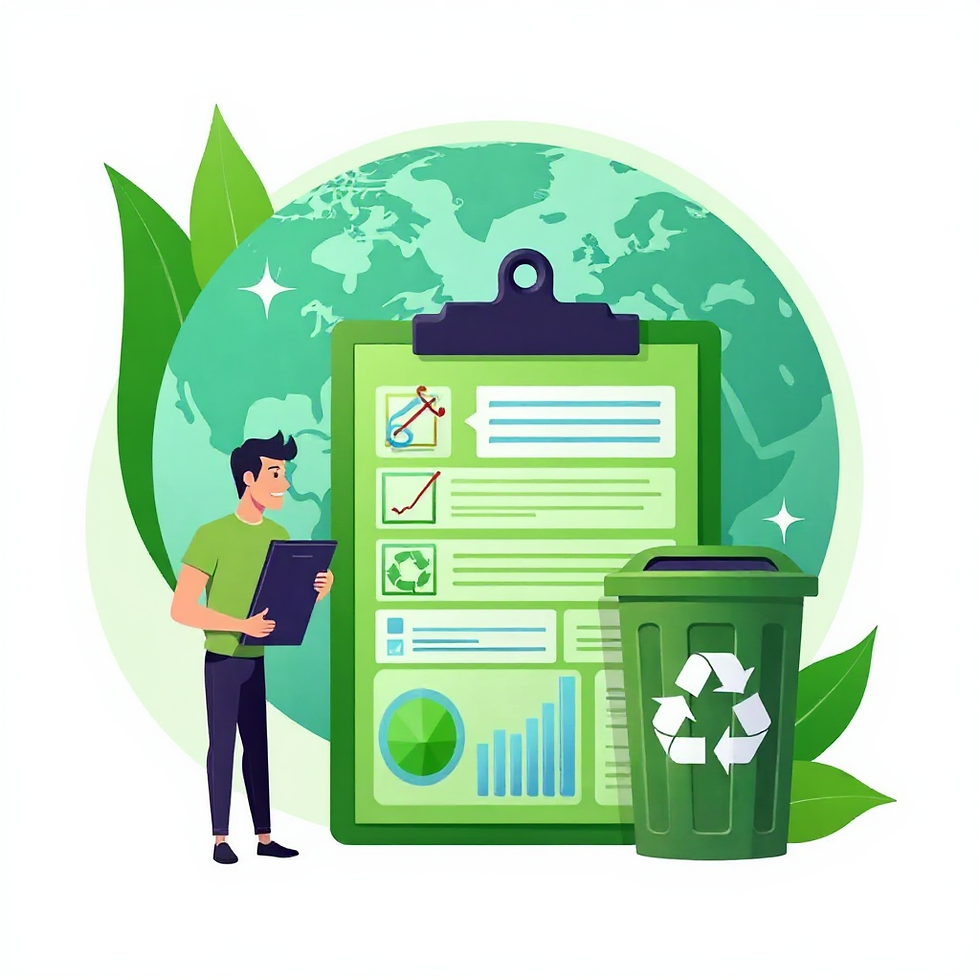From Cost to Cash: Ree-thinking Waste Management as a Revenue Opportunity
- Ree

- Jun 30, 2025
- 3 min read
For decades, waste management has been viewed as an unavoidable cost of doing business, a logistical necessity that drains resources without delivering returns.
We need to change that mindset because in today’s world, where circular economy principles and sustainability commitments are taking centre stage, the opportunity to make a significant impact is increasing. It’s time we start seeing waste not as garbage, but as untapped value.
We'd hope that everyone who reads this knows at least the 3Rs of Waste Management
Reduce
Reuse
Recycle

It's the 5Rs that we want more of a focus on when it comes to turning waste into revenue.
Refuse - Say no to materials that we know won't have a life beyond it's initial use.
Reduce - Simple reduce the amount of resources you use that generate waste.
Reuse - Identify resources that can be used multiple times rather than single use.
Repurpose - Use existing resources to create new items that were not necessarily their original purpose (this is key!))
Recycle - Finally, create a supply chain that contains resources that can be easily recycled.
Waste as a Resource
Many organisations are discovering that what once ended up in landfills can now find new life and generate revenue. Whether it’s through recycling programs, composting, or upcycling materials into new products, businesses across all industries can monetising what used to be written off.
Take food and beverage companies turning by-products into animal feed or cosmetics. Or manufacturers selling scrap metal, plastic, and cardboard to recyclers.
The Business Case for Circularity
Investing in waste-to-value initiatives isn’t just good for the planet, it’s good for the bottom line. Businesses that integrate circular practices are seeing reduced raw material costs, better supply chain resilience, and stronger brand loyalty from eco-conscious consumers.
Forward-thinking companies are even setting up in-house recycling systems or partnering with awesome companies (nod nod, wink wink) to co-create products using waste materials. What was once a line item in the expense report is now contributing to revenue!
Take a Seat
At Ree we provide waste collection services that focus on waste reduction and landfill diversion (soon to be incineration diversion). An example of a recent project is this chair and table.

Made from bottle tops, it served 2 benefits;
First the PET bottles they were separated from we turned into PET pellets and sold to be turned into new bottles
The chair and table became either a sellable product or used in the office reducing the need to purchase new furniture.
Mindset Shift and Leadership
Turning waste into wealth starts with a shift in mindset. Leaders must reframe waste management not just as compliance, but as a strategic lever for growth. Far too often we hear that there isn't the budget to create waste-to-value initiatives because the budget comes from the Facilities or Operations accounts.
or is purely Cross-functional teams—from operations to finance to sustainability—need to align on how to measure, manage, and monetize waste.
With the right approach, companies don’t just save money—they create new business models.
Take a Seat
What’s Next?
As ESG standards tighten and customers demand more transparency, companies that embrace this shift will gain a competitive edge. The question isn’t whether we can afford to transform our waste strategy—it’s whether we can afford not to.
Let’s turn our trash into treasure, literally and figuratively.
If you’d like to tailor this further for your industry or audience—say, logistics, hospitality, or tech—I’d be thrilled to help refine it.
_edited.png)



Comments